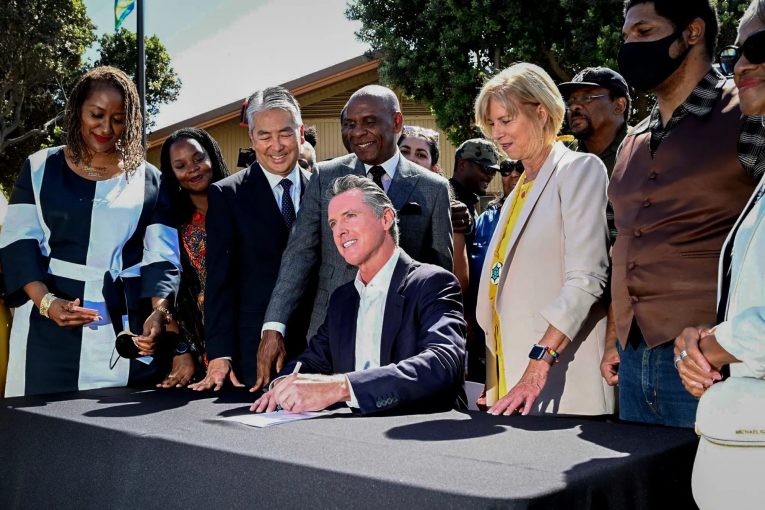

By Rena Abdusalam
SACRAMENTO, CA – California Gov. Gavin Newsom has signed into law four landmark criminal justice bills – sponsored by the Prosecutors Alliance of California.
Founder and Executive Director of the Prosecutors Alliance of California, Cristine Soto DeBerry, said, “These are important bills that will enhance safety, justice, victim privacy and prosecutorial transparency across California.”
Protecting sexual assault survivors’’ privacy, SB 1228 prohibits the collection of the survivors’ DNA profiles from being used for any purpose other than aiding in identifying the perpetrator of a sexual assault.
Searching DNA or the close consensual contacts of a survivor to implicate them in unrelated crimes will be banned for local law enforcement agencies – SF Police Dept. reportedly did that, spurring the need for legislation forbidding it.
“Using a sexual assault survivor’s DNA to investigate the survivor is an unacceptable violation of their trust and privacy,” said DeBerry. “The practice makes it even less likely that a victim will report an assault or get help, and that makes us all less safe. This legislation will end this practice and help reestablish trust between police and survivors of sex assault.”
The governor also signed SB 301, which helps combat the sale of stolen goods on online marketplaces by establishing higher conditions of accountability and verification for third-party sellers on online platforms. Doing so ensures marketplaces to identify and take action against sellers of stolen goods, said sponsors.
“From smash and grabs to auto burglaries, package theft and more, a massive amount of property crime in California is driven by organized crime,” commented DeBerry.
She added, “By going after the demand side of the major driver of property crime, SB 301 is a practical solution backed by facts and data. Requiring online retailers to collect and disclose information about high-volume third party sellers will undermine a major marketplace for stolen goods.”
Also signed by Gov. Newsom is AB 2746, which will reduce racial and wealth-based disparities in the enforcement of minor traffic laws. While still maintaining road safety, it will remove license suspensions based on failure to appear in court and require the first two offenses an infraction for driving without a license.
“Suspending licenses for minor infractions that are unrelated to driving disproportionately punishes people of color without providing any public safety benefit,” DeBerry said, adding, “This law will ensure people can still get to work and pick up their kids from school, let alone get to court, instead of trapping people in an endless cycle that we know often increases recidivism.”
By requiring district attorneys to collect and report data about their cases, AD 2418, the last bill signed by the governor, will enhance transparency and accountability in prosecutions.
Data, such as demographic information about the accused and victim, charging information, information about plea offers, and case disposition, will be passed on to the DOJ and made accessible to the public.
“Transparency is critical to holding our leaders accountable. You can’t be a good manager without good data, and the public can’t assess whether a prosecutor is effective when fundamental metrics are veiled in secrecy. This legislation will ultimately help the public ascertain whether a prosecutor’s approach is enhancing safety and justice for all,” DeBerry stated.